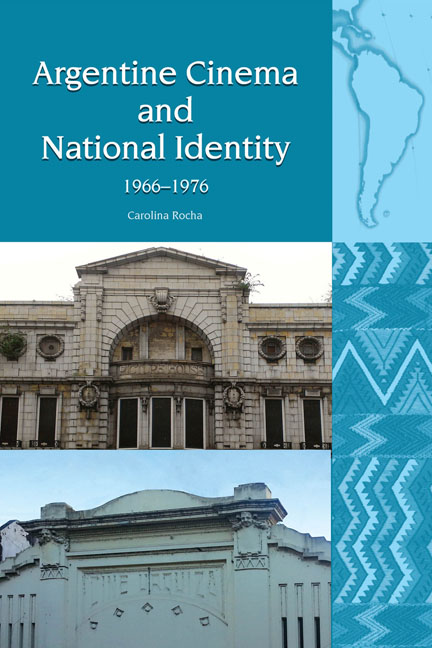Section I - Argentine History and National Cinema, 1955–1976
Summary
In this section, I provide a brief account of political events in Argentina post-1955, after Juan Perón was deposed, up to March 1976, when a military coup took place. This period was marked by a succession of short-lived governments (both military and democratic), Peronism's prohibition of civil participation until 1973, and the emergence of new political actors such as the youth and women. Within this context, I stress the ‘tradition versus modernization’ dialectic and the discussion about Argentina's present and future. I then look at the ways in which Argentine cinema strove to become a national industry that could attract a domestic audience which was becoming more heterogeneous. I argue that Argentine cinema constituted a significant medium to develop cultural citizenship during this period, but one which experienced different demands. On one hand, the film industry appeared to be a central area of concern for the Argentine state, which passed laws seeking to encourage the production and consumption of national films. This protection, however, was fiercely resisted by local exhibitors, who considered foreign films more appealing and lucrative than domestic ones. On the other hand, Argentine cinema was subjected to distinctive and contradictory forces: protectionist legislation was, at times, accompanied by censorship that was detrimental to freedom of expression and creation, both of which were needed to successfully compete with other cinemas and gain recognition in and access to international markets. Lastly, this was a period ‘when the filmmakers’ sense of responsibility was radicalized, and when politics was conceived as the central axis of cultural practices’ (Bernini, 2004, 156).
- Type
- Chapter
- Information
- Publisher: Liverpool University PressPrint publication year: 2018

